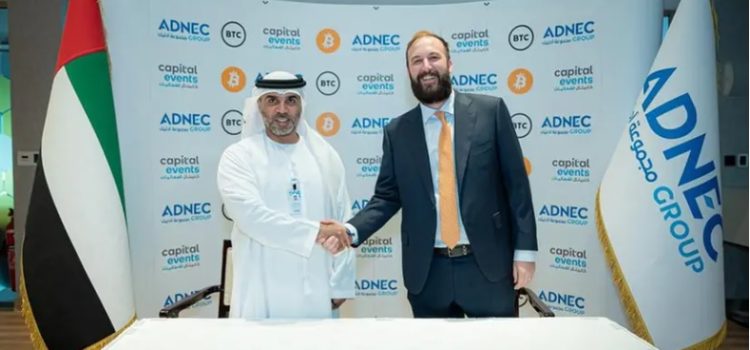
Network International (Network), the leading enabler of digital commerce across the Middle East and Africa (MEA) region, collaborated with virtual asset service provider CoinMENA FZE, to provide users with a seamless and secure onramp from fiat to crypto via card deposits.
The announcement was made at a signing ceremony led by Pankaj Kundra, Group Head of Products, Partnerships, and Enterprises at Network International, and Talal Tabbaa, CEO of CoinMENA.
CoinMENA is regulated and licensed by Dubai’s Virtual Asset Regulatory Authority, and the Central Bank of Bahrain. CoinMENA enables investors to buy, sell, send, receive, and store digital assets safely and securely.
CoinMENA Co-Founders Talal Tabbaa and Dina Sam’an said in a joint statement, “Partnering with Network International, the leading enabler of digital commerce in the MENA region, marks a significant milestone in our commitment to providing our users in the UAE with seamless and secure onramps to crypto. With the ability to deposit fiat to their CoinMENA wallet instantly via cards, our users can now experience a streamlined and efficient process. This aligns with our mission to continually enhance the accessibility and convenience of crypto services. We look forward to leveraging Network International’s industry leadership in the UAE and providing the best experience possible for our users.”
Pankaj Kundra, Group Head of Products, Partnerships and Enterprises at Network International, said, “Network’s legacy of 30 years of providing cutting-edge payment solutions allows us to capitalise our experience and expertise across next-generation platforms such as crypto and digital asset financial services. Our collaboration with CoinMENA will provide UAE investors with an additional option to use their cards to fund their CoinMENA wallets.”
He added, “Deposits using cards is the most convenient way for users to fund their crypto wallets. We look forward to supporting CoinMENA by strengthening their onramp capabilities, through our best-in-class N-Genius payment gateway. Our partnership further reaffirms our commitment to streamline digital payments in the region in line with the UAE’s bid to become a financially inclusive and cashless economy.”
Recently CoinMENA expanded its family office, investor and institutional offering through a partnership with Onramp Bitcoin. Onramp is an international Bitcoin asset management company built on multi institutional custody.


















